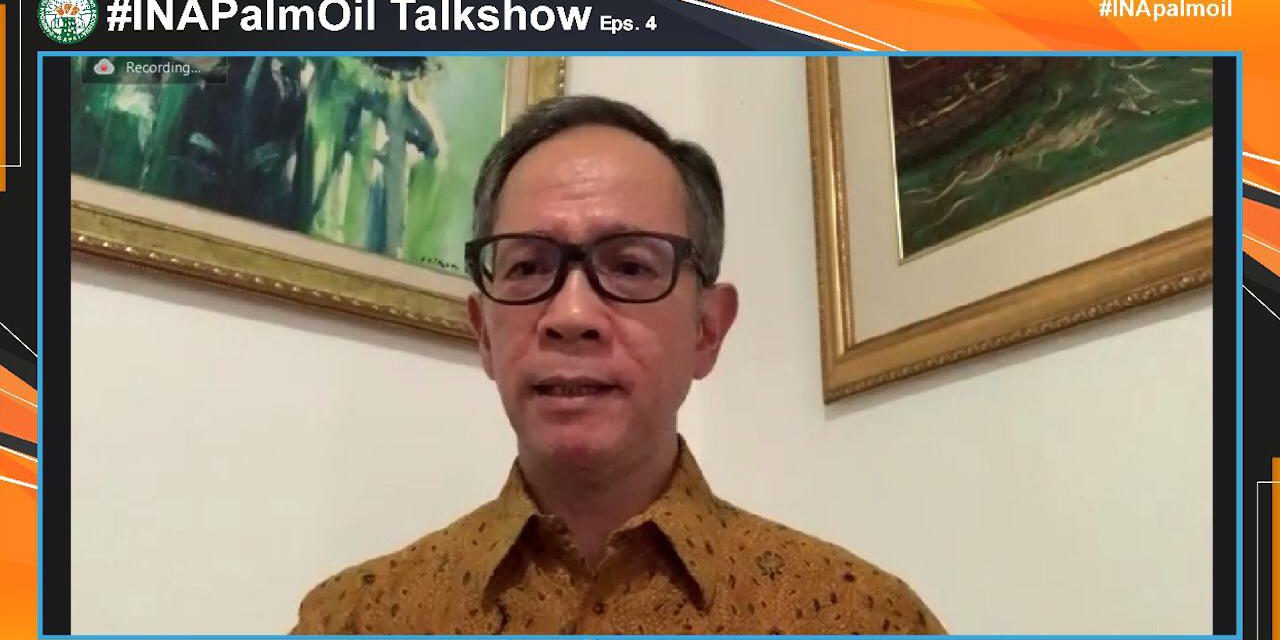Jakarta. The growing number of “palm oil free”-labeled products on the market can cast palm oil in an unfavorable light, according to a recent webinar held by the Indonesian Palm Oil Association or Gapki.
Earlier this month, Australian chocolate company Darell Lea launched an ad to announce that they have entirely ditched palm oil in their products.
The ad is a video of an orangutan drumming to George Michael’s “Freedom” implying that the animal is now “free” from deforestation which is often linked to oil palm plantation.
American food company Kraft Heinz has also caught Gapki’s attention by slapping a palm oil free label on their hazelnut butter.
According to Gapki’s chairman Joko Supriyono, the food labeling issue has already been around in Indonesia since 2016. An imported product with the label was found on the shelves of a grocery retailer. In 2019, a home industry producing cheese sticks were caught labeling their product as palm oil-free as a marketing strategy.
The products were later reported to the Food and Drug Control Agency (BPOM).
Joko also raised concerns over imported products carrying such a label on online platforms.
“We will see more of these labels in the future. These labels conflict with the national interest,” Joko told an online discussion on Wednesday.
Foreign Affairs Deputy Minister Mahendra Siregar said the misleading label can cause a negative stigma and a trade barrier towards palm oil-producing countries particularly Indonesia as the commodity’s leading exporter, especially with the European Commission under the European Union (EU) claiming the commodity as unsustainable.
“The global demand to achieve sustainable development goals (SDGs) keeps on growing. Ironically, palm oil is the readiest [when it comes to SDGs], but it is the most discriminated against,” Mahendra said.
The minister said that the palm oil entering the European market has fulfilled the Indonesian Sustainable Palm Oil (ISPO) standards. Its’ compliance towards the Roundtable on Sustainable Palm Oil (RSPO) standards has also exceeded 90 percent.
Indonesia has filed a suit against the EU to the World Trade Organization (WTO) for palm oil discrimination. Also, Indonesia is currently negotiating with the UK regarding their due diligence policy. Imported palm oil and other commodities such as cacao in the UK are required to prove that their production does not have a negative environmental impact.
According to Mahendra, there should be mutual recognition between the two countries. The UK should also prove that their commodities are grown sustainably.
“If the UK does not do the same for their products and restrict their market for our exports, then this should be defined as discrimination,” he said.
Meanwhile, BPOM’s processed food deputy Reri Indriani also pointed out the discrimination in terms of regulation. Both BPOM and the EU have issued regulations that forbid misleading food labels.
“The label should only contain information of the ingredient actually included in the food-making process. If a cheese stick or cracker does not naturally contain palm oil, it should not claim that it is free of palm oil,” Reri said.
There is also a lack of scientific research that proves the negative impact of palm oil on health, she added.
Source: The Jakarta Globe










